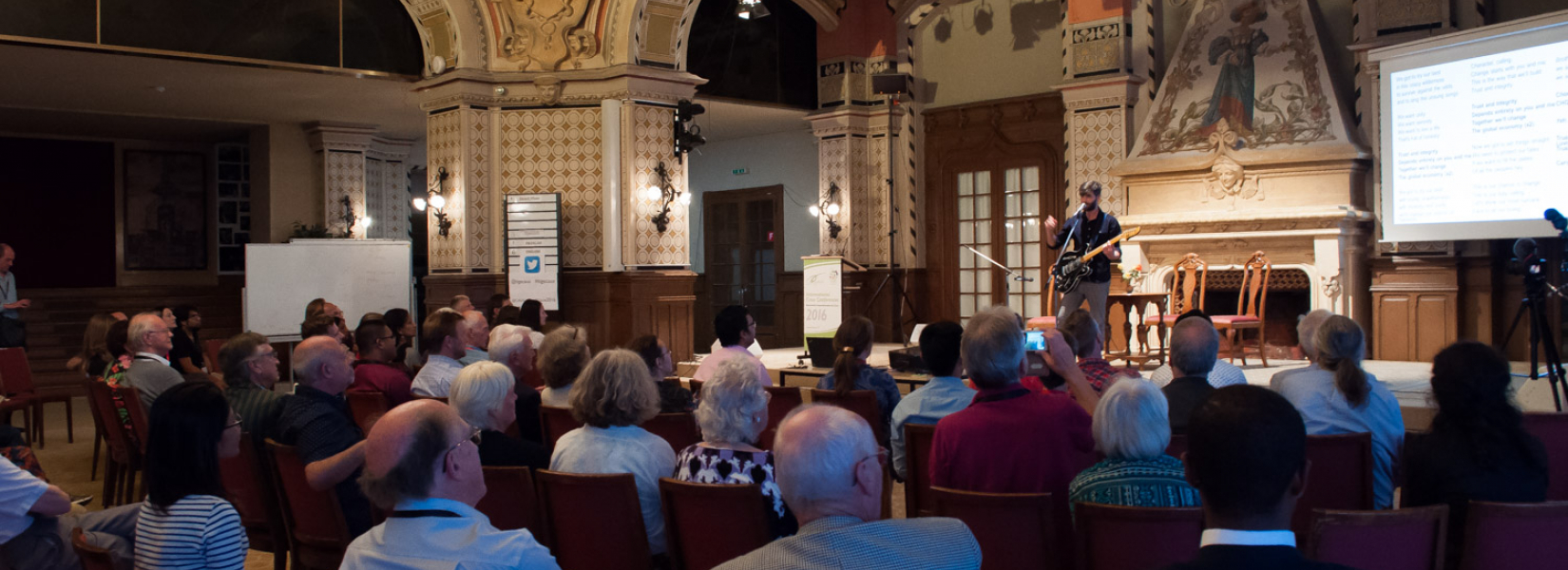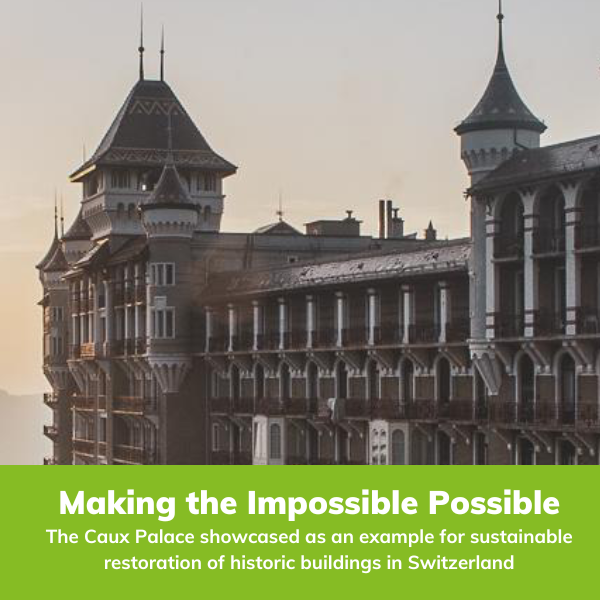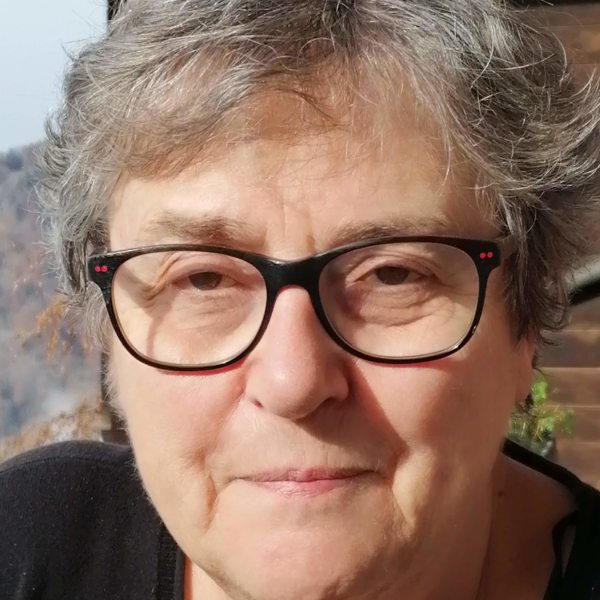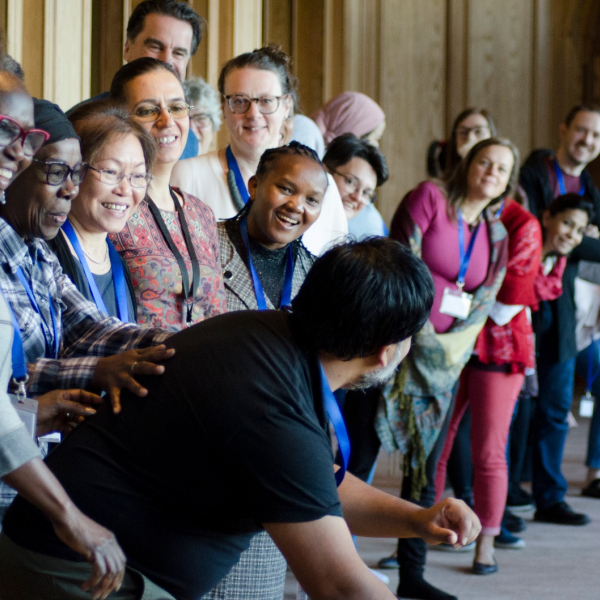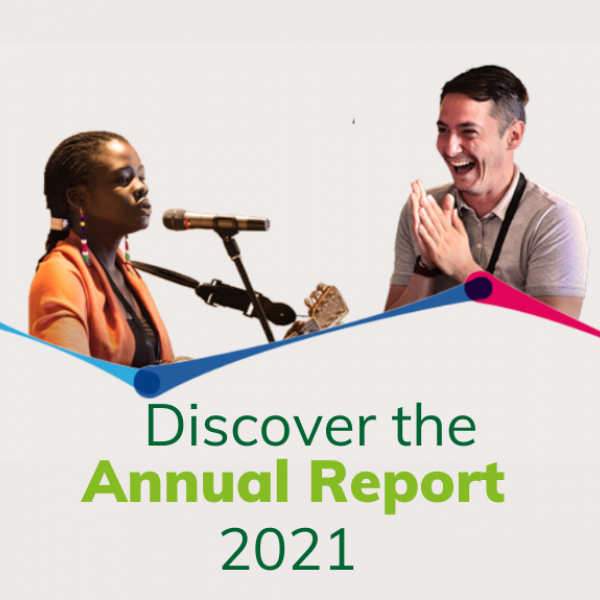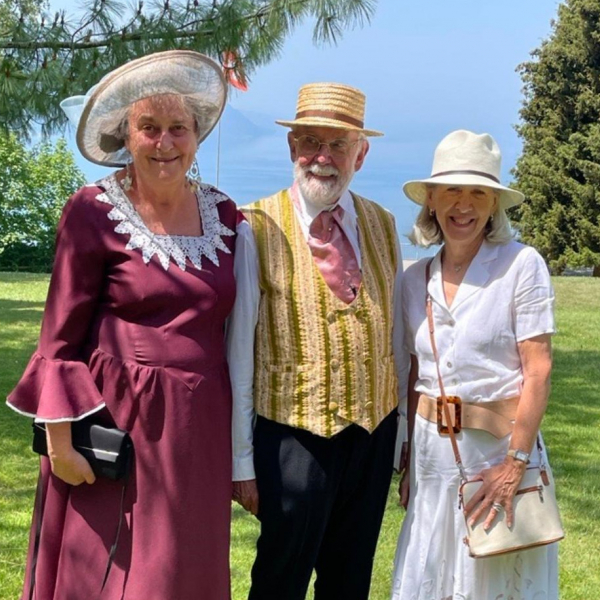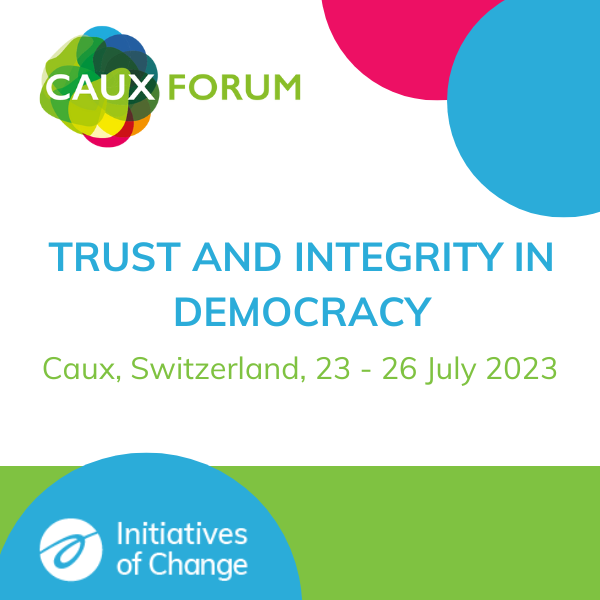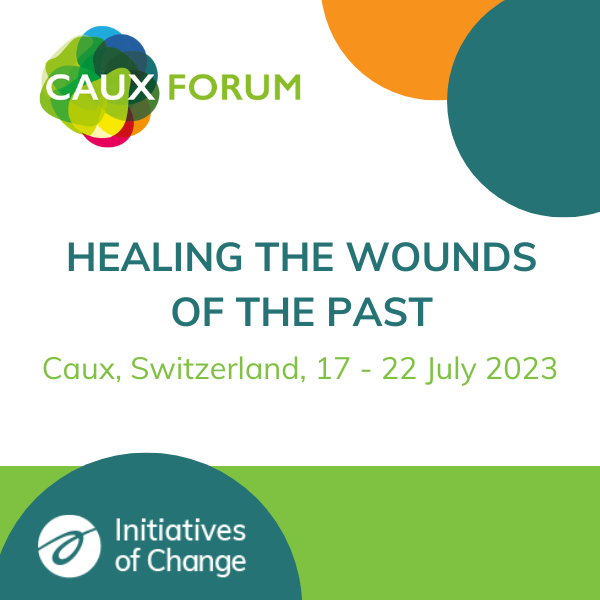TIGE Conference - Personal stories of leadership and transformation
Whistleblowing puts the humane back into business, say two African whistleblowers
30/06/2015By Doris Okenwa
It’s been 15 years since Wendy Addison spoke truth to power. In the year 2000, while working as the international treasurer of the publicly listed South African company LeisureNet, regarded as the darling of the Johannesburg stock exchange, she spotted and exposed backhand dealings within the organization. But whistleblowing comes with a heavy price tag. ‘The focus is often on shooting the messenger and not to examine the message,’ she told the annual conference on Trust and Integrity in the Global Economy (TIGE) in Caux, Switzerland, on 29 June.
 Exposing the two Chief Executive Officers in one’s own organization could be considered at least as a maverick move, especially as they had been her personal friends. Addison was the only woman on the board and became known as ‘Wendy the wildcard’.
Exposing the two Chief Executive Officers in one’s own organization could be considered at least as a maverick move, especially as they had been her personal friends. Addison was the only woman on the board and became known as ‘Wendy the wildcard’.
It took 11 years for her to secure justice amidst death threats and loss of income. She was fired from the company and much of her social circles, to the point of fleeing, under death threats, with her young son from South Africa to the UK.
The corrupt executives eventually landed jail terms. But deprived of an income and with no savings or pension, the messenger was left in the cold. Addison begged on the streets of Kingston upon Thames, South-west London, for several months to survive and cater for her 12year old son prior to the legal enquiry and court case beginning back in South Africa. From 2012 till today, she says, ‘it’s been a matter of rebuilding myself, initiating Speak Out, SpeakUp (her support organizations for whistleblowers), and then starting to be of service to others.’
Alia Ben’s story, which she told publicly for the first time during the TIGE conference, rings with the same moral conviction. Ben was part of her family’s long established flourmill in Casablanca, Morocco, the largest such enterprise in the North African country, with over 1000 employees. Rather than engage in unethical business practices, Ben disclosed information to her grandfather, the original owner of the business.
She found family members blurring the line between company finances and their personal wealth. With the support of her grandfather, Ben exposed corrupt practices, despite the patriarchal ties that bind many Moroccan business ventures. ‘Moroccan businesses are family businesses,’ she says, making deviation from the status quo akin to the betrayal of one’s kith and kin. But to maintain the reputation of the family business, she felt she had no other option. Since, the company has been bought and she remains in the organization as a key consultant.
What stands out from Ben’s story is the desire to stand up for what us right against all odds, even if it involves family. These women are not ignorant of the devices employed against perceived traitors.
Addison understands the psychological implications of whistle blowing as she explained to TIGE participants who questioned her about its ideological and moral underpinnings. ‘No one is born a choker,’ she says. ‘I believe we all know what’s right and wrong from a very innate, primitive sense. The problem is we don't know how to act on what we see as wrong doing.’ Analysis and speculation is easy; action is harder. ‘So while the whistle blower or the messenger, or the person having the courage, might be seen to be altruistic or naive in terms of their action, I believe it’s an absolutely necessary step for us, specifically if we look at the messages that are coming out from whistle blowers.’
Addison, who has recently completed a Courageous Leadership course in Berkeley, California, has developed what she calls ‘a social psyche model that trains individuals and builds the brain’s neuro-muscles’ through a program called Social Fitness Training. The idea is to enable candid conversations by building confidence through objective dialogues. ‘Just like training for a marathon,’ she says. People are trained to speak up from a less emotional or subjective standpoint and also fortified against possible backlash.
She cautions that ‘there is also work to be done on the recipient of the bad news, so that we support their sense of self-worth as well in terms of how they hear that bad news, how they frame that bad news and what actions they take afterwards.’ The natural inclination is often to silence the messenger and erect walls to prevent further scandals. This defeats the aim. For in the end, whistle blowing should not be a witch hunt. It is a quest for ethics, conscience, fairness; a quest to put the humane factor back into business.
